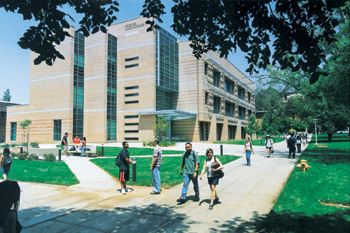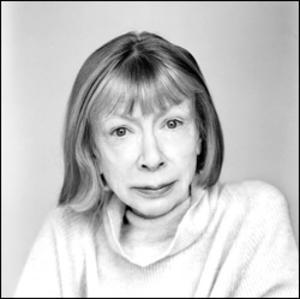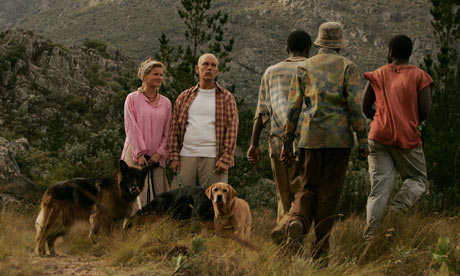News
By sheer coincidence, three of the five most recent books I’ve read were set in Vietnam or featured Vietnamese characters. One of these was Monique Truong’s debut novel, The Book of Salt, in which the main character, Binh, works as a cook for Gertrude Stein and Alice B. Toklas. (The idea for the novel came to the author when she learned, from reading Toklas’s famous cookbook, that Stein and Toklas had employed “Indochinese cooks.”) In the passage below, Binh describes the interviews he has to submit to in order to find a job and during which he has to explain what he has been doing between his departure from Vietnam and his arrival in Paris.
Three years unaccounted for! you could almost hear them thinking. Most Parisians can ignore and even forgive me for not having the refinement to be born amidst the ringing bells of their cathedrals, especially since I was born instead amidst the ringing bells of the replicas of their cathedrals, erected in a far off colony to remind them of the majesty, the piety, of home. As long as Monsieur and Madame can account for my whereabouts in their city or in one of their colonies, then they can trust that the République and the Catholic Church have had their watchful eyes on me. But when I expose myself as a subject who may have strayed, who may have lived a life unchecked, ungoverned, undocumented, and unrepentant, I become, for them, suspect.
What struck me about this passage is how easily it could apply to another employee (a chauffeur, say) from another of France’s former colonies (Morocco, for instance.) The relationship between servant and master seems to be colored in similar hues, and it made me wonder if that was because of the similarities in the two colonial relationships.

This Thursday, I’ll be reading from my novel, Secret Son, at the 33rd annual Writers’ Week, hosted by the University of California, Riverside. Below are the details:
Thursday, February 11, 2010
4:00 PM
Reading and Discussion
Writers’ Week
CHASS INTS 1128
University of California, Riverside
Riverside, California
Later that evening, Lawrence Wright, the Pulitzer Prize-winning author of The Looming Tower, will be delivering the Hays Lecture. If you haven’t read The Looming Tower, I highly recommend that you do. That book will not only educate you about Osama bin Laden and Ayman al-Zawahiri, it will also make you appreciate more fully all the intelligence failures that led to the attacks of 9/11. And then on Friday, UCR will host the amazing and amazingly talented Dolen Perkins-Valdez and Heidi Durrow, both of whom have recently published first novels, which I am very eager to read.

I’m working on a new essay this week, so in order to put myself in the right mood I went back to one of Joan Didion’s older essay collections, After Henry. Here is a brief excerpt from “In The Realm of the Fisher King”:
This was the world from which Nancy Reagan went in 1966 to Sacramento and in 1980 to Washington, and it is in many ways the world, although it was vanishing in situ even before Ronald Reagan was elected governor of California, she never left. My Turn did not document a life radically altered by later experience. Eight years in Sacramento left so little imprint on Mrs. Reagan that she described the house in which she lived—a house located on 45th Street off M Street in a city laid out on a numerical and alphabetical grid running from 1st Street to 66th Street and from A Street to Y Street—as “an English-style country house in the suburbs.”
She did not find it unusual that this house should have been bought for and rented to her and her husband (they paid $1,250 a month) by the same group of men who gave the State of California eleven acres on which to build the “governor’s mansion” she actually wanted and who later funded the million-dollar redecoration of the Reagan White House and who eventually bought the house on St. Cloud Road in Bel Air to which the Reagans moved when they left Washington (the street number of the St. Cloud house was 666, but the Reagans had it changed to 668 to avoid the association with the Beast in Revelations); she seemed to construe houses as part of her deal, like the housing provided to actors on location. Before the kitchen cabinet picked up by Ronald Reagan’s contract, the Reagans had lived in a house in Pacific Palisades remodeled by his then sponsor, General Electric.
I love how Didion’s sentences are structured in such a consistently effective way in all her work. I admire, for instance, the way she dislocates some of her clauses whenever she wants to save a particularly surprising or incisive point till the end. This essay originally appeared in the New York Review of Books and reprinted in After Henry, which was published in 1993.

At a dinner party in London a few years ago, I was once again professing my admiration for the work of Coetzee when a writer I had just met interrupted to say that he thought Disgrace was a racist novel. When I asked him what could have led to such a bleak assessment, he replied that no black character in the book is complex and that the novel gives a pessimistic view of the new, post-apartheid South Africa. To bolster his claim, he cited Coetzee’s self-imposed exile from the country as a clear indicator of lack of faith in its future. This was the first time I had heard that argument, but it certainly wasn’t the last; it came up in an email conversation with another friend very recently.
I think that this charge of racism is tied specifically to the scene in which three unknown black men attack the farm where Lucy, Professor Lurie’s daughter, lives and works. Lurie is locked in the bathroom while his daughter is raped. In this life-changing moment, Lurie thinks:
He speaks Italian, he speaks French, but Italian and French will not save him here in darkest Africa. He is helpless, an Aunt Sally, a figure from a cartoon, a missionary in cassock and topi waiting with clasped hands and upcast eyes while the savages jaw away in their own lingo preparatory to plunging him into their boiling cauldron. Mission work: what has it left behind, that huge enterprise of upliftment? Nothing that he can see.
It is easy to see how a quick reading of that passage can lead to the kind of charge my friend was making: there is that phrase, ‘darkest Africa;’ there is the image of the missionary in the cauldron; there is the choice of ‘lingo’ instead of ‘language’; and there is the questioning of the benefit of the mission civilisatrice. Some readers might see this as proof of racism, but I think the problem with this interpretation is that it ascribes to J.M. Coetzee the point of view of David Lurie.
In Disgrace, Coetzee uses a third-person limited point of view, so the thoughts we are reading are Lurie’s. And Lurie is very much an apartheid-era man, someone who believes that European colonization of Africa served the larger, nobler goal of ‘civilizing’ the natives. The rape of his daughter further solidifies his views, however ignorant or incorrect they may be. But in fact Coetzee subverts the narrative of ‘black sexual predators’ much earlier on, when he presents us with an identical, inverted story. Notice, for instance, that the professor refuses to acknowledge that he has assaulted Melanie, who, we are told, is a woman of color (“Meláni, the dark one.”) When Lurie forces himself upon Melanie, he describes the scene as “not rape, not quite that.” Again, the use of the third-person limited point of view allows us to see that Lurie forgives himself for the sexual assault while at the same time he is outraged at his daughter’s fate. These complexities are, I think, what make the novel a subtle and compelling portrait of the cyclical nature of power and violence.
Photo: Still from the film adaptation of Disgrace. Credit: Fortissimo Films. I haven’t seen the film yet, but I am not sure if it can capture the subtlety of the novel.
I’m desperately trying to make some progress on my new book before I have to travel. Next week, for instance, I’ll be taking part in Writers’ Week at UCR. The week after that, the UK edition of my novel, Secret Son, comes out and I will be traveling to London for some promotion. In March, I’ll start the paperback tour for Secret Son in the US. You can find out more about all the events here. If you happen to be in one of the cities I’ll be visiting, please stop by and say hello. I’ll also make sure to post more details as the dates get closer.


